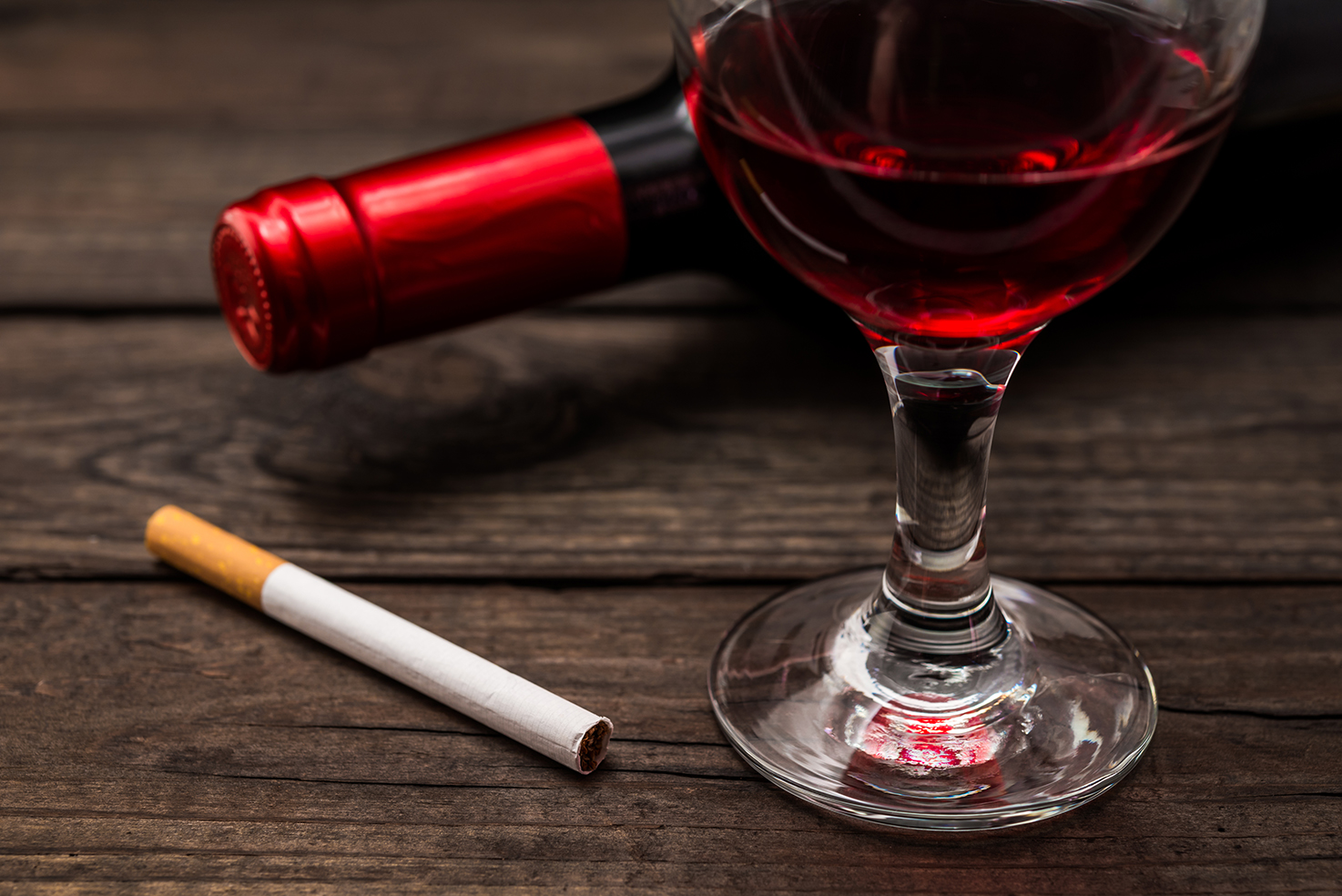
A new study shows that a glass of red wine prior to smoking a cigarette can reduce some of the short-term negative impacts of smoking. (Credit: Shutterstock)
Before reaching for your next cigarette consider first pouring a glass of Merlot.
A new report in The American Journal of Medicine has found that a glass or two of red wine before smoking a cigarette can counteract some of the short-term vascular damage caused by smoking.
“Sparse data exists on the short-term potential vasoprotective effects of red wine in smoking-healthy individuals,” lead investigator Dr. Viktoria Schwarz, of the University of Saarland, Homburg, Germany, said in a statement.
“The aim of our study was to investigate the acute vascular effects of red wine consumption prior to ‘occasional lifestyle smoking’ in healthy individuals. We found evidence that preconsumption of red wine prevented most of the vascular injury caused by smoking.”
Cigarette smoke can cause acute endothelial damage, vascular and systemic inflammation and cellular aging, while red wine stimulates the formation of endothelium-dependent relaxation factors such as nitric oxide, which improve endothelial function in coronary arteries because of the high phenol concentration in red wine.
The study focused on the biochemical processes in the blood and blood vessels of 20 healthy non-smokers who volunteered to smoke three cigarettes. Half of the volunteers drank enough red wine for a 0.075 percent blood alcohol content one hour before smoking. The subjects gave both urine and blood samples before and after drinking and smoking and continued until 18 hours after smoking.
Smoking is known to cause microparticles from endothelial cells, platelets and monocytes into the bloodstream. This indicates that cells in blood vessels are being damaged.
However, the cellular damage did not occur in the subjects who consumed the vino prior to smoking.
Cigarette smoking is also known to impact telomerase activity—a biochemical process described as ‘protective caps’ on chromosomes.
These caps can shorten and lose their protective ability during aging. In the study the group that smoked without drinking saw a 56 percent decrease in telomerase activity, while the drinking group only saw a 20 percent decrease.
Schwarz explained that inflammation puts stress on cells due to an imbalance in reactive oxygen species production and the body’s antioxidant defenses.
“We observed acute proinflammatory changes, namely, leukocytosis, neutrophilia, upregulated levels of IL-6 in serum and enhanced messenger RNA expression of IL-6 and tumor necrosis factor alpha,” she said. “Our study adds to the present evidence that the proinflammatory effects in nonsmokers with ‘occasional lifestyle smoking’ could be prevented by red wine consumption.”
While the study results are conclusive, because the research focused on young and healthy non-smokers it is unclear whether the findings apply to the elderly, the ill or chronic smokers.
And while the study shows that a glass or two of Cabernet Sauvignon can help reduce the negative impacts of smoking, Schwarz does not want to motivate occasional smokers to drink more or occasional drinkers to smoke.
“Nevertheless, this study identified mechanisms suitable to explore damage and protection on the vasculature in humans, paving the way for future clinical studies,” she said.
The study can be viewed here.




